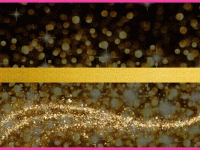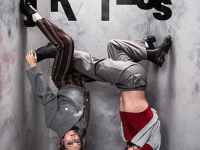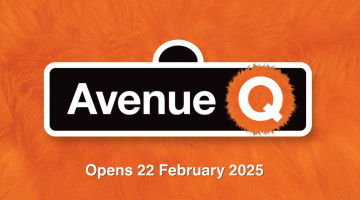 If you have ever heard about Amelia Cormack you’ll know that she is highly talented and extremely versatile performer. Having completed a USyd Performance Studies Degree and a Musical Theatre degree at WAAPA she has performed throughout Australia on stage and screen alike. Some of her credits include Clara from The Hatpin, A Diva in Priscilla: Queen of the Desert and a Swing/Mabel and Greta Understudy in the recent production of FAME in Sydney. We caught up to talk about this and more:
If you have ever heard about Amelia Cormack you’ll know that she is highly talented and extremely versatile performer. Having completed a USyd Performance Studies Degree and a Musical Theatre degree at WAAPA she has performed throughout Australia on stage and screen alike. Some of her credits include Clara from The Hatpin, A Diva in Priscilla: Queen of the Desert and a Swing/Mabel and Greta Understudy in the recent production of FAME in Sydney. We caught up to talk about this and more:
When did you first dream of being on the stage?
I was always very musical as a kid, music was always playing in my house. Both my parents are very musical so I started playing violin when I was 6 and piano when I was 9. When I got to school I just wanted to do everything, then when I went to Redlands I could do of everything – they had orchestras and choirs and I could do drama. I considered myself a stage addict because if it was on stage I wanted to do it.
I don’t know whether there was any moment, it was like I always kind of knew, I think it was just kind of like something I knew I would do and I just had to do it in any way shape or form. And it’s funny because even now when people say to me ‘what do you want to do work-wise, like what area do you want to do?’ and I always say I just want to work, be that film and TV, be that theatre, be it music theatre, be it cabaret, I just love it all. Yeah, it was weird, it was like ‘I love this, it makes me happy and I’m going to do it for the rest of my life.
When you finished school, how did you go about making that a reality?
Originally when I was in year 12 I applied for the Bachelor of Arts/Bachelor of Music at Sydney Uni as a singer and they said that I was too young ‘cause I went straight from high school to Sydney Uni, I was 17, since my birthday’s in July I was always younger. They said we think you’re great but you’re quite young so I just did a BA and I majored in performance studies. I am very grateful for my university education because I think going to university before I went to drama school was a really, really good thing because it gave me a much more academic approach to my learning when I got to WAAPA. WAPPA was like going back to high school, so the fact that I had that degree and an Arts degree is there to teach you how to think. Although I was doing lots of shows, I was doing reviews I was doing lots of things with the Sydney Uni drama society, with the New South Uni Drama Society, I was singing in a band so I was doing everything. When I got to the end of my first degree and I realised that music theatre was my real passion and that’s what I wanted to do and I auditioned for WAAPA and I got in and I just went straight from there.
Your All-Time favourite Musicals?
I am a fan of really obscure, new, interesting work and I’m a bit of a traitor to my kind because the older stuff just doesn’t excite me…
So Anthony’s [Costanzo] Stuff?
Anthony’s Stuff, Yeah, James [Millar] and Pete [Rutherford], I’m about to workshop their new show and I realised that I will have done everything they’ve ever written, I did two workshops for Hatpin, LoveBites and now Touch of Chaos. So new work has always excited me, but I think the role that I would love to play but I never will is Marie Christine by Michael John LaChiusa because she’s of African descent, I’ll never play that. But yeah, so definitely, the work of Jason Robert Brown, Adam Guettel, Michael John LaChiusa, I just did a concert with John Bucchino, his work is just so beautiful. So definitely that kind of more obscure [work], I call it the New New York School.
What was it like being in the creative process of a musical?
I have been blessed to have been involved in the creative process of musicals a number of times and it is the most incredible experience because you are creating a work, and your input as a performer – particularly with James and Pete. James tends to be a little bit vicious with his own work and will cut it mercilessly whereas with most writers you’re sitting there trying to get them to cut things and they don’t want to. James is a very, very good friend of mine from WAAPA and he and I think the same in terms of performing, so there’s an innate trust there between us where he knows that if I go ‘this isn’t working’ or ‘this doesn’t feel right, there’s just something about it’, he trusts my judgement. So it’s an incredible experience, even with Priscilla, that has to be one of the things I’ve done that I’m most proud of, I mean, we created it, we made it and it’s a smash hit in London, just opened on Broadway… Just having a hand in that is pretty amazing. Actually when I was in Perth with James doing LoveBites, I realised that apart from Fame, my whole career so far has been new work, every show I’ve done was new work which is pretty amazing. I find that’s what really excites me is the new stuff, particularly thoughtful, intelligent music. I mean, LoveBites, is a perfect example, my brother never comes to anything twice and he came to LoveBites twice, I have a friend in Perth who works on oil rigs and he came to LoveBites twice and happily so, loved it. That shows you that music that is intelligent doesn’t have to be inaccessible.
So you did some workshopping with Priscilla as well?
Yes. I was actually involved in a very early workshop before we started rehearsals. It was quite funny actually, I was up for a part in a short feature film, I loved the script and I was just coming back from glandular fever as well and I’d had the meeting with the director, I was really excited about the project, had read the script and then I got this call from my agent at, like, 6 o’clock on a Friday night saying ‘Priscilla want to see you’. I have to admit, I’m not a fan of jukebox musicals, I’m a book musical girl so when I first got the brief I decided that I’d go in for it but given the choice between the two, I’ll have to take the film. I find with auditions, sometimes you just know you’ve got the job, or I do anyway. So I walked into the waiting room and there was all men and I was like, ‘Oh, OK, this is a bit weird’ and it was 5:30 on a Monday afternoon and I was the last one there and I walked in and I sang and I knew I had it. I just knew but I felt really bad because it was the end of term 2 and I’d just sent out the invoices to all the parents at [McDonald College] and all the schools I was teaching at so I felt really bad. Anyway, the next day, about ten to midday on the Tuesday I got a phone call from my agent saying ‘They want you and they want you in Melbourne tonight’ and I was like, ‘What?’ It was to do this four day workshop and I asked if I could do the workshop and then decide if I wanted to do the show and they said no. So I had literally six hours to make the decision and it broke my heart to turn down the film but at the end of the day it could be a possible 18 months worth of work versus a few days. As it turned out it was definitely the right decision.
Do you notice a big difference between musicals created in Australia and musicals that have been brought in?
Definitely. I think also the nature of the stuff that I love, again one of the things I love about James and Pete’s work and I think Anthony Costanzo does the same thing with the way that he writes. It lets you go to a dark place, and that’s the thing about LoveBites that I really, really respected about it, and even with Hatpin you know, they take you to that dark place but they don’t let us dwell there. A show like I Love You, You’re Perfect, Now Change it’s basically the same idea and it’s really sweet and funny but there’s never really moments where you go but love is shit as well, people die and things break up and that’s what LoveBites does, you know? It says let’s look at the crap, let’s go there, but you’re OK, we’ll take you out again. I find that the shows we tend to get that are brought in are the big smash hit ones. That’s why I’m so glad that MTC does what they do and I think Simon Phillips really paved the way for that, the fact that they’re doing Next to Normal. The problem is in Australia that our population is so small that they put TV stars in already known shows, so it’s going to be really interesting to see how Love Never Dies goes for example, even though it’s got the Really Useful Group and it’s Andrew Lloyd Webber. The problem is our market.
Priscilla had a great response from audiences, did anyone think that it would take off that much?
We had no idea, in a sense. That’s the scary and wonderful thing about creating a show. You just have no idea, you just think ‘this could be amazing or this could flop’. I think because of the cast, I think because of the creatives that we had, I mean, Tony Sheldon is a very good friend and mentor, he has been a huge influence on me as a performer, he directed us when we were in 2nd year at WAAPA and he is the most wonderful, wonderful performer. It’s been proven that there is no one else in the world who can perform that role. I remember that first audience we had and we hadn’t even finished teching the show and the response was just amazing. Being a diva, that fist time we actually got to do it flying and we came down and the whole audience just gasps. Singing those first notes of the show was just a gift, an absolute gift.
Following up on that, what was it like being suspended from the roof each night?
It was interesting, I got used to it eventually, I would have little naps up there if I was really tired. Cause I was in the middle the most and whoever was in the middle had to go up first and then you have to wait for the others and yeah, I’d just sit there and have a little nap and relax. I mean there were a couple of times where things went wrong and that was a little scary but most of the time [we were fine]. We had the most incredible crew and our safety was their number one priority.
Did you have a favourite song or moment in the show?
I always loved Macathur Park because it was just us belting our tits off, for ages. I loved that, I did love that opening moment, that was probably the most special. Especially when people were seeing it for the first time, just getting that reaction and it never stopped, every time, every show, it was just ‘Oh!’
So you just did Fame as well, understudying Mabel and Greta…
Fame unfortunately didn’t work out for me, I lost my voice for a little while in September because I just took on too much, it was a big lesson in a number of things. Fame was great, the company was fantastic, the cast were just so supportive. I ended up having to leave two weeks before it closed, just because I needed a rest and I needed to stop but it was an interesting lesson for me in my psyche. Being a swing, swings are the most underappreciated member of a cast, they really are. They work their asses of, they work so hard and have to know so many roles. Our swings on Priscilla were ridiculous, they would have five different roles in their head. It was a great lesson for me to learn that but I think the diva inside me took a little bit of a beating. Unfortunately I wasn’t happy in myself and in the show. It was tough but yeah the cast and the company, everyone was just so unbelievable supportive, I came into the show injured and they completely took care of me.
How much notice would you get before a show as in ‘tonight you’re going on as Greta’?
Usually, with most shows, the person has a responsibility, if you’re calling in sick before a matinee it’s before 9 and for a night show before midday. Often there’ll be a spacing before the hour call, so everyone will go down to the stage and go through spacing and make sure they’re in the right place and all that kind of stuff. I had a very interesting experience [in Fame] where I almost went on for the last matinee, after I’d left the show, they called me because Bec Mendoza and Lillias White were both very ill and I almost went on for Miss Sherman for the last matinee, which was a role I’d never understudied. They’d called me Saturday night and just said ‘you might have to go on tomorrow as Miss Sherman so could you just shadow Bec’ and I thought ‘Oh, OK’… But it was a great moment of redemption for me in that I got to sound check the songs and sing through the songs and show the cast what I could do because up until that point I’d just been this little mouse, I wasn’t speaking, I wasn’t singing… I was very grateful to the universe for that moment of closure.
How do you keep yourself healthy for an 8 shows per week schedule?
Good sleep and plenty of water is the key. Knowing your limitations and figuring out what is physically possible to sing 8 times a week is really important as well – there’s no point going 110% every night as your body/voice will burn out. Everyone’s also got their own miracle cures too for when you feel a bit burnt out – steam and propolis lozenges are mine.
You’ve done work in both theatre and film and I constantly hear comments saying how hard it is to switch between the two or if you come from a stage background you’re too big for screen or vice versa…
I always thought that I would be because we had film and TV classes at WAAPA and I was always told too big, too big, too big. I do a lot of work at the Australian Film, Television, Radio School, they’re really good because they’ll employ the actors, they’ll pay you a tiny amount of money but they will pay you to work with their directing students. I’ve done a number of workshops where I’ve gone in as an actor but I ended up learning so much because one of the first ones I did after I graduated, the guy who was running the course made this great comment and he said; never tell an actor their performance is too big because a performance is not a quantifiable thing, what’s big? You look at Baz Luhrmann’s Romeo and Juliet and they’re very theatrical performances, they’re huge performances; but, they’re true. That’s the thing, as long as it’s true there’s no such thing as too big but you have to couch it in, maybe it’s a little too theatrical or make it more intimate. When I graduated, I had all these screen tests and I was shocked, I always thought I was going to be too big for camera and then my first three jobs were film and television. I definitely feel more comfortable on the stage but I want to learn more about film and I want to do more. That’s why I’m such a believer in doing student films and things for free because you just get so much experience. I definitely don’t feel as comfortable in front of a camera because it’s so intimate, you think things and they show on your face and I’m a very expressive person.
On top of all of this you write your own music, is there a history behind that or did it just develop along with everything else?
It’s very interesting that you asked the question like that because I kind of dabbled on the piano and I tried to write things before deciding it sounded like everyone else. Then I picked up a guitar and started playing around with it, I taught myself to play the guitar – very basically. What happened was because I was on an instrument that I was unfamiliar with and just feeling my way it was like it unlocked something and I was suddenly able to write and all this stuff came up. It was almost like a journal, my stuff is very autobiographical, like most writers’ is, my stuff always comes from somewhere or something that has happened in my life and that was about when I was 19 or 20. Then I was able to go back to the piano and it was like I’d found my sound and through using an instrument that I was unfamiliar with I was able to think about what sounded good and it just came from there. The Album is a culmination of the best of the songs of the last 10 or 11 years.
I have noticed that your music is really personal, is it from your history and experience?
Yeah, I think that’s why I don’t think I could every have a music career because I can’t write to a schedule. When something’s going on I sit and I do it and it’s done, I’m not one of those people who go back and rewrite things and draft things. I will sit at the piano or sit at the guitar and it will all come out and that’s it. It has to be because the mood takes me or because there’s some reason why I’m doing it. I went through a period where I didn’t write anything for two years, at the moment I haven’t written anything for months. It depends on the space that I’m in… I mean, there aren’t many happy love songs, there are a lot of tortured love songs because that’s when you want to write most often or that’s when you want to express yourself. I think so anyway, the best stuff comes from the most tortured soul.
At your last Vanguard show, you threw in a little bit of everything, was it just a whole lot of stuff that you like singing?
Since I have a lot of the same people coming to my shows, friends and family I want to be giving them something different each time, giving them a reason to come back and I recently saw a couple of soul singers who just didn’t move me at all and I was really frustrated with that. If you’re going to be a soul singer and going to sing soul, this might be a bit crass but soul is about sex, it’s that kind of music and you have to get it into your body. Whenever I’m showing students I always show them the Mary J. Blige video of ‘One’ that she did with U2 and you watch the way she gets into it, she’s in her body and you have to be. That’s why I wanted to do a soul set because I’d just gotten so frustrated watching those girls just get up there and look pretty, you can’t sing that music that way. Soul is about singing from your soul, it’s real, it’s raw, it’s sexy, it’s passionate. I always do a Tori Amos song because she’s such an inspiration to me and I try and do a Missy Higgins song as well, she’s been a huge inspiration to me in terms of writing. I’m a big believer in if you’re going to do a cover you have to make it your own, I hate the way people do covers and they just repeat exactly the same song, the original’s there for a reason, do it and make it your own. I’m also a firm believer in singing with your own accent, I never do an American accent unless I believe there is a specific reference to that. I think the biggest motivating force for me as a performer is that everything has to come from you, you have to connect with that material in some way, even if you hate the song, even if you’re doing something that you don’t like, you have to find a way to connect with it.
So what’s next, what’s happening now?
It’s huge, it’s really, really busy, it’s feast or famine in this country, it really is, you go from nothing to all of a sudden being really in demand. I did Seesaw with Neglected Musicals, then I did the John Bucchino concert which was just amazing, I’m doing two concerts for New Musicals Australia, workshopping James and Pete’s new show and they are going to be on the 16th and 18th March and then the show will workshop from the 21st – 26th and we’ll present on the 25th and the 26th. Then Side By Side [by Sondheim] in April and then there’s a possibility the composer Michael Nyman’s coming out and I might get to perform some of his work. Then I’m going to move overseas to New York for three months and then London with the idea of moving to New York permanently.
Interview for DanceLife By Alex Chambers









